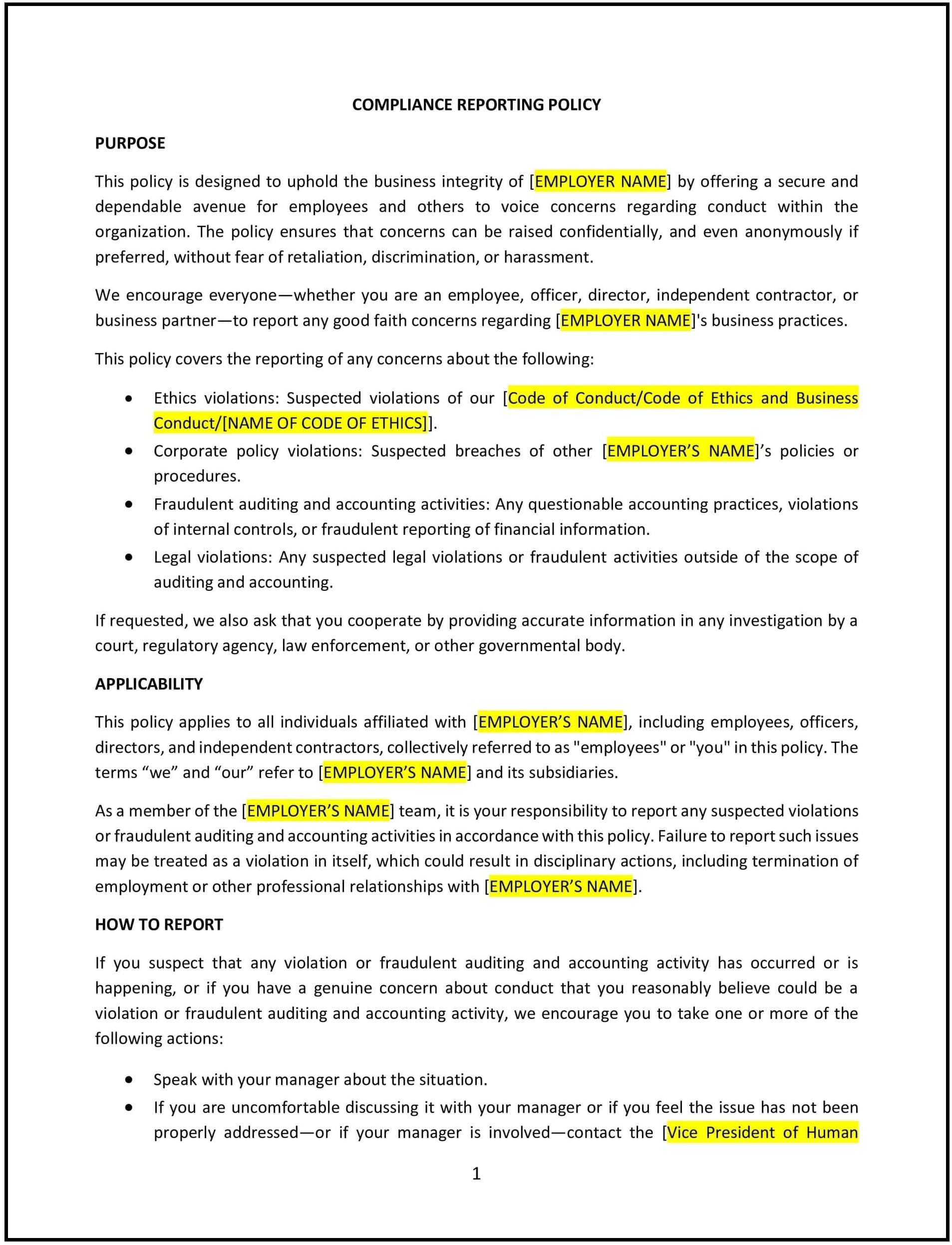Compliance reporting policy (North Carolina): Free template
Got contracts to review? While you're here for policies, let Cobrief make contract review effortless—start your free review now.

Customize this template for free
Compliance reporting policy (North Carolina)
A compliance reporting policy helps North Carolina businesses create a framework for employees to report violations of company policies, legal requirements, or ethical standards. This policy outlines the procedures for reporting non-compliance, defines the protections for whistleblowers, and specifies the consequences of failing to report or retaliating against employees who report compliance issues.
By adopting this policy, businesses can ensure that employees are informed about their reporting rights and responsibilities, promote transparency, and maintain adherence to legal and ethical standards.
How to use this compliance reporting policy (North Carolina)
- Define compliance issues: Clearly define what constitutes a compliance issue, such as violations of company policies, laws, ethical standards, or industry regulations.
- Set reporting procedures: Outline the process for reporting compliance issues, including where to report (e.g., HR, legal department, anonymous hotline) and how reports will be handled.
- Provide whistleblower protections: Ensure that employees who report compliance violations are protected from retaliation or discrimination. This protection should be clearly outlined in the policy.
- Specify investigation procedures: Define how the company will investigate reported compliance issues, including timelines, confidentiality, and impartiality in the investigation process.
- Address consequences: Outline the consequences for failing to report violations, as well as for employees found guilty of non-compliance or retaliation.
- Reflect North Carolina-specific considerations: Ensure the policy complies with North Carolina's specific whistleblower protections and other relevant state regulations.
Benefits of using this compliance reporting policy (North Carolina)
This policy provides several benefits for North Carolina businesses:
- Promotes transparency: Encourages employees to report misconduct and ensures that concerns are addressed promptly, fostering a transparent work environment.
- Reduces legal risks: By addressing compliance issues early, businesses can avoid fines, penalties, and reputational damage associated with violations.
- Protects the company’s reputation: A clear commitment to compliance reporting helps maintain a positive public image and demonstrates ethical business practices.
- Encourages ethical behavior: The policy supports a culture of ethics and integrity, where employees feel responsible for upholding the company’s standards.
- Ensures legal compliance: Helps the company adhere to North Carolina's labor laws and other industry regulations by providing clear guidelines for reporting violations.
Tips for using this compliance reporting policy (North Carolina)
- Communicate the policy clearly: Ensure all employees understand how and when to report compliance issues and emphasize the importance of reporting concerns.
- Protect whistleblowers: Reinforce the protection of employees who report violations, ensuring there are no adverse consequences for coming forward.
- Monitor compliance issues: Regularly review compliance reports and follow up on investigations to ensure that violations are addressed and resolved.
- Train employees regularly: Offer training on identifying compliance issues and the importance of reporting them to ensure that employees understand their responsibilities.
- Review the policy periodically: Regularly review the policy to ensure it reflects changes in North Carolina’s laws and the company’s operational needs.